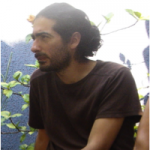Link to DOI – https://doi.org/10.14351/0831-4985-34.1.157
Collection Forum (Vol. 34, Issue 1, pp. 157–169). Society for the Preservation of Natural History Collections (SPNHC).
The use of specific preservative solutions by museum professionals to maintain fluid-preserved specimens has fluctuated over the years with advances in chemistry. The determining factors for the original choice of solution closely correlate with the historical parameters and original usage of the collections. Consequently, for any given collection, changes and substitutions over time in the types of preservative fluids used have likely occurred. The present comparative analysis of the state of brain preservation, carried out at macroscopic, microscopic, and molecular levels, allowed us to evaluate the effect of the different treatments applied over time to fluid-preserved collections. Our results confirm that the duration of formaldehyde exposure of the tissues clearly has an effect on their long-term preservation. Despite the controversies associated with the quality or use of some historic fixatives, modern analytical methods such as medical imagery reveal the preservation quality in historic specimens and their potential for future research use. However, the choice of fixatives and storage fluids to preserve the specimens is of critical importance because today’s choices will influence the use of the specimen for advanced analytical methods in the future.


